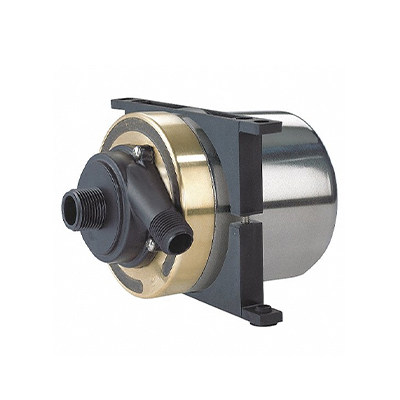When it comes to choosing the right marine pump, whether for ballast water treatment, freshwater supply, or other crucial ship operations, it’s important to understand the various types, performance parameters, and maintenance needs. In this marine pump buyer’s guide, we’ll break down the key aspects of marine pumps, helping you make the best decision for your vessel.
Types of Marine Pumps
Marine pumps can be categorized based on their working principles and applications. Here are some common types:
- Centrifugal Pumps: Ideal for high-flow, low-lift applications, such as seawater cooling systems.
- Gear Pumps: Designed for transferring high-viscosity liquids like fuel oil and lubricants.
- Screw Pumps: Provide smooth flow, making them suitable for precise dosing and metering applications.
- Reciprocating Pumps: The pumps are perfect for high-pressure applications. They are commonly used in ballast water systems, where precise control of liquid flow under pressure is essential for ship stability.
Key Performance Parameters
When selecting a marine pump, marine pump performance is a key consideration. The pump’s efficiency in terms of flow rate, head (pressure), and overall energy consumption directly impacts operational effectiveness and costs. High-performance pumps ensure that your vessel operates efficiently, without unnecessary downtime or operational hiccups.
Flow Rate and Head: These specifications determine the pump’s capacity to transport liquid and the pressure it can exert. It’s crucial to match these factors to the demands of your vessel’s operations.
Power and Efficiency: The energy consumption of energy-efficient marine pumps is a key factor in reducing long-term operational costs. Pumps with higher efficiency not only lower fuel expenses but also comply with increasingly stringent environmental standards.
Corrosion Resistance and Material Selection
Since marine pumps often come into contact with seawater, corrosion-resistant marine pumps are essential for long-lasting performance. Choosing the right materials is key to ensuring durability and reducing maintenance needs. Marine pump materials like stainless steel, bronze, and special alloys provide resistance to corrosion, ensuring your pumps continue to operate under harsh marine conditions.
Energy Efficiency Standards
As environmental regulations become stricter, choosing energy-efficient marine pumps is not just an option but a necessity. These pumps help reduce energy consumption, minimize environmental impact, and lower fuel costs. By selecting energy-efficient pumps, ship operators can contribute to a greener shipping industry while ensuring long-term cost savings.
Maintenance and Repair
Proper ship pump maintenance is essential for the longevity and reliability of your marine pumps. Regular inspections and maintenance can prevent costly repairs and reduce downtime. Pumps that are designed for easy maintenance, with quick component replacement and minimal need for specialized tools, can significantly improve operational efficiency.
Customer Reviews and Case Studies
Before purchasing a marine pump, it’s always helpful to check marine pump reviews and case studies from other ship operators. These resources provide valuable insights into the performance and reliability of different models. By learning from real-world experiences, you can make a more informed decision when choosing the right pump for your vessel.
Selecting Seawater Pumps for Ships
For vessels that require seawater for cooling, firefighting, or other applications, seawater pumps for ships are a crucial component. These pumps are specifically designed to handle the corrosive nature of seawater while providing consistent and reliable performance across various maritime operations.
Purchasing Guide
To ensure you choose the best marine pump, consider the following steps:
- Define Your Requirements: Determine the type of liquid, flow rate, and pressure requirements for your ship’s operations.
- Consider Environmental Factors: Assess the corrosive nature of seawater or other fluids the pump will be exposed to.
- Budget Planning: Select a pump that provides the best value within your budget while meeting performance needs.
- Brand and Manufacturer: Choose reputable brands and manufacturers to ensure high quality and reliable after-sales support.
- Technical Support: Make sure the manufacturer offers comprehensive technical support and maintenance services to ensure long-term performance.
Conclusion
Choosing the right marine pump is vital for the smooth and efficient operation of your ship. By considering factors such as marine pump performance, corrosion resistance, energy efficiency, and ease of maintenance, you can ensure the best possible performance for your vessel. BESQO Marine offers a wide range of high-quality marine pumps to meet the diverse needs of various ships and marine engineering projects. Contact BESQO Marine today for more information and customized solutions tailored to your operational needs.
